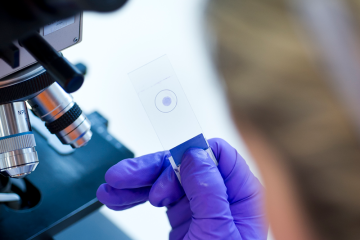Project grant
Cell based assay for tetanus vaccine and antitoxin production

At a glance
In progress
Award date
September 2023 - August 2026
Grant amount
£325,247
Principal investigator
Professor Andrew Peden
Co-investigator(s)
Institute
University of Sheffield
R
- Replacement
